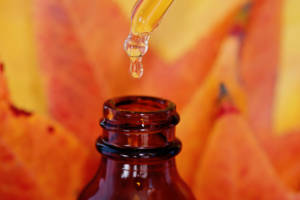
Native Australians have used tea tree oil for the treatment of cuts, abrasions and burns for hundreds, if not thousands, years, but it is only in the last decade that the use of this medicinal oil has reached modern mainstream consumers.
Tea tree oil contains terpenoids, naturally occurring compounds that are thought to have antiseptic and antifungal properties.
What Forms Does Tea Tree Oil Come In?
Tea tree oil is sold as an undiluted essential oil, and is also used as an ingredient in toothpastes, mouthwashes, creams, lotions, household cleaning products, shampoos, and liquid or solid soaps.
Several websites recommend diluting pure tea tree oil with another oil such as olive, apricot or avocado oil, or also with water or vegetable glycerin.
What is It Used For?
Skin Care.
Tea tree oil is popularly used for the treatment of athlete’s foot symptoms (though it does not cure the underlying fungal infection), acne, dandruff, abrasions and topical infections. Some websites also claim that tea tree oil is effective for sunburn, poison ivy, splinters, sprains, tick bites, and other insect bites.
Yeast Infections.
Tea tree essential oil is one alternative treatment for vaginal yeast infections. Tea tree oil, which has antibacterial and antifungal properties, work to fight different types of yeast infections, including C. albicans vaginal infections.
Home Health.
In addition, tea tree oil has many purported household uses, including as an all-purpose cleaner when combined with other ingredients such as borax and vinegar, as well as for room deodorizing, the cleaning of household plants, and a dishwasher or laundry disinfectant.
Is It Safe to Use?
A handful of scientific studies have apparently been performed to test the efficacy and safety of tea tree oil, and some safety concerns do exist.
Tea tree oil should never be taken internally, as it can cause diarrhea and central nervous system dysfunction. Undiluted tea tree oil has been found to cause itching and irritation when applied directly to the skin of some individuals.
Some evidence links the use of tea tree oil to breast enlargement in boys. It is also recommended that the use of tea tree oil be avoided by pregnant women, lactating women, and individuals with hormone-sensitive cancers, although the evidence has not yet been thoroughly examined or corroborated.
Tea tree oil may be dangerous to young children and pets if ingested.
READ: Use These 5 Essential Oils For Better Health!
Conclusion
Tea tree oil has many apparent uses, although scientific research regarding its efficacy and safety is still relatively inconclusive and scant. However, anecdotal and some scientific evidence does support the notion that tea tree oil has many potential uses both around the house and for human health. It would be hoped that further scientific research is ongoing or pending, and consumers are cautioned to use their best judgment when evaluating the safety or efficacy of various tea tree products.
If you have any questions about the safety of tea tree oil for you or your family, please consult your health care provider prior to use.